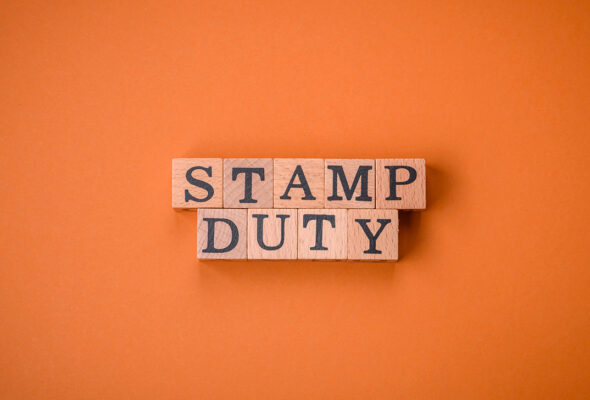Legislation for Landlords
Landlords, did you know that currently, there are over 170 pieces of different legislation
Written by: Richard Antrobus Category: Landlords October 29, 2022
Did you know that there are over 170 Pieces of Legislation for Landlords
As regulated Association of Residential Letting Agents (ARLA), we are dedicated to provide our clients with the latest information on the ever changing rental regulations as well as guidance to be successful and compliant as a landlord.
Whilst our qualified lettings team will take care of all regulations under our full management service, in the event a landlord does choose to self-manage, below are just some of the most important pieces of legislation that we feel our landlords should be aware of. Below are just 10 current Legislation for Landlords, by no means an exhaustive list, more intended as something of a taster to the laws currently governing our industry.
Energy Efficiency Regulations 2015 / 2018
The Energy Efficiency (Private Rented Property) (England and Wales) Regulations 2015 established a minimum energy efficiency level for all domestic private rented properties in England and Wales that are required to have an Energy Performance Certificate (EPC).
When this regulation was first implemented in April 2018, landlords could not let properties on new tenancies to new or existing tenants if the EPC rating was F or G. From 1 April 2020 this was extended to cover all relevant properties, even where there has been no change of tenancy.
The Government is shortly due to change this regulation to ensure that all tenanted private rented properties should be at an EPC rating of ‘C’ or above by 2025 and all existing tenancies by 2028.
Gas Safety (Installation and Use) Regulations 1998
Landlords are required to ensure that gas safety checks are carried out every 12 months by a Gas Safe registered engineer on all gas appliances and flues at the property.
Record of the safety checks must be kept for a minimum of two years (or from 6 April 2018, for the time of two further checks) and issue a copy of the most recent certificate to existing tenants within 28 days of the check and new tenants before they move in.
Smoke and Carbon Monoxide Alarm (England) Regulations 2015
The Smoke and Carbon Monoxide Alarm (England) Regulations 2015 came into force on 1st October 2015 detailing legal requirements in the private rental sector in England. The aim was to make rental homes safer and to protect tenants from death or injury in the home caused by smoke and carbon monoxide poisoning.
In 2022, the government updated this regulation to state that all landlords must now ensure a carbon monoxide alarm is provided in any room used as living accommodation which contains a fixed combustion appliance (excluding gas cookers). All landlords will be legally obligated to ensure smoke alarms and carbon monoxide alarms are repaired or replaced once they are informed and the alarms are found to be faulty.
Electrical Safety Standards Regulations 2020
These relatively new Regulations require landlords to have the electrical installations in their properties inspected and tested by a person who is qualified and competent, at an internal of at least every 5 years.
Landlords then need to provide a copy of the electrical safety report to their tenants prior to moving in.
Tenancy Deposit Registration Regulations
Legislation for Landlords very much includes tenancy deposits and how they are secured during a tenancy. Funds taken as a deposit must be registered in a government-approved tenancy deposit scheme.
The deposit must be registered in the scheme within 30 days of receipt and you should provide a copy of the registration certificate to the tenants within a 30 day timescale. At VitalSpace, we use the Tenancy Deposit Scheme under an insured policy.
The Housing Act 1988/2004
The Housing Act 1988 governs the law between landlords and tenants and specifically introduced the concepts of assured tenancy and assured shorthold tenancy.
The Housing Act 2004 significantly extends the regulation of houses in multiple occupation by requiring some HMOs to be licensed by local authorities. It also provides the legal framework for tenancy deposit schemes, which are intended to ensure good practice regarding deposits in assured shorthold tenancies and make dispute resolution relating to them easier.
All landlords must ensure that tenants and other occupiers in their rented property have a right to rent in the UK.
Landlords must take a copy of the documents seen, and record the check being completed. If a tenant has a time limited right to rent (e.g. a visa or Biometric Residency Permit with an expiry date) then the check must be done within 28 days of the tenancy start date and the visa must be valid for the proposed tenancy start date.
Landlords in England face financial penalties and prosecution if they rent to someone who does not have a legal right to be in the UK.
Deregulation Act 2015
The Deregulation Act 2015 came into force on 1 October 2015 affecting both landlords and tenants regarding tenancy deposits, retaliatory evictions and section 21 notices.
The legislation is complicated and one of the most important as it includes the Section 21 rules on the required process for evicting a tenant should it be necessary. The forthcoming Rental Reform Bill will effectively abolish the Section 21 process for good. More on that when it happens.
General Data Protection Regulation (GDPR)
The Data Protection Act 2018 controls how a tenants personal information is used by agents and landlords.
Following the UK’s departure from the EU, a new domestic data privacy law called the UK-GDPR took effect on January 31, 2020, and, alongside the Data Protection Act of 2018, governs all processing of personal data from individuals located inside the United Kingdom.
Housing and Planning Act 2016
In May 2016, the Government brought The Housing and Planning Act into law introducing new rules for landlords and letting agents. The aim is to improve how housing is managed in England.
Items included within the legislation were the introduction of banning orders, rent repayment orders and the introduction of a database of rogue landlords.
Consumer Protection Regulations
Consumer Protection Laws are extremely detailed and, if you have a few hours to kill, there is a 98 page document on the gov.uk website which explains it in great detail!
However, in essence, the legislation states that to comply with consumer law, agents and landlords must ensure that the services they provide to tenants are carried out with reasonable care and skill and within a reasonable time. This covers services prior to a tenant moving in, during the tenancy and after the tenant has moved out.
With all the Legislation for Landlords, do you need our help?
At VitalSpace, our landlords can be reassurance that we are knowledgeable, up to date with current regulations and always on hand to assist with the change in Legislation for Landlords
Please contact us and speak to a member of our lettings team who can provide any advice needed – Please do not worry, we have you covered.









